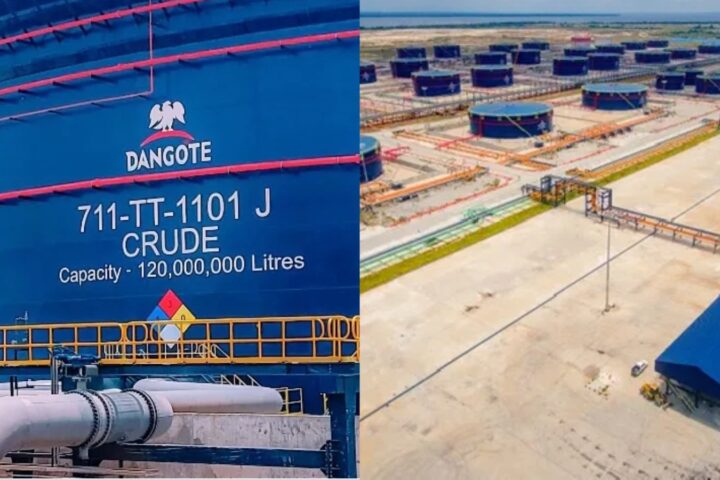Chief Executive Officer of the Centre for Promotion of Private Enterprise (CPPE), Dr. Muda Yusuf, has called on the Nigerian government to reform declining economic sectors as reflected in the 2022 third quarter Gross Domestic Product (GDP) report.
Dr. Yusuf made this call while commenting on the quarterly GDP report released by the National Bureau of Statistics (NBS). The figures showed that real GDP growth dipped to 2.25 per cent in the third quarter of 2022, from 3.54 per cent in the second quarter of the same year.
Join our WhatsApp Channel
Nigeria’s GDP dropped by 1.78% points from the 4.03% growth rate recorded in third quarter of 2021. It also decreased by 1.29% points relative to 3.54% in Q2 2022.
READ ALSO: Inflation: CPPE Seeks Concessionary Import Duty For Industrialists
The economic expert attributed the drop to headwinds such as “macroeconomic instability, heightening inflationary pressures, currency depreciation, foreign exchange illiquidity, surging energy cost, weakening purchasing power, legacy structural constraints, lingering insecurity, and crippling trade facilitation issues.”
The GDP report indicated sectors that expanded, those that slowed, others that contracted and sectors that plunged into recession.
Some of the sectors that recorded accelerated growth in the third quarter of 2022 according to the report included: Quarry/other minerals (39.6 per cent), motion pictures & music (22.4 percent), insurance (19.9 per cent), chemical & pharmaceutical (11.09 per cent) and ICT (10.53 per cent).
According to the report, the sectors that suffered contraction (negative GDP growth) include: Crude oil and gas (22.67 per cent), Oil refining contracted (44.7 per cent), Coal Mining (43.5 per cent), Food and beverage sector (4.05 per cent), Electricity and Gas (3.56 per cent), Textiles (3.98 per cent), Plastics and Rubber (3.92 per cent) and manufacturing sector (1.91 per cent).
He pointed out that the crude oil and gas, oil refining, textiles and railways went in to recession. “These sectors are plagued by challenges of insecurity, wrong policy choices, structural impediments, plunge in productivity and corruption,” Dr. Yusuf stated.
He expressed worry that the manufacturing sector shrunk by 1.91 per cent and more worrisome is that of food and beverage sector, which affects the populace most, that contracted by 4.05 per cent.
According to him, this is the first contraction of the sector since the recession of the second quarter of 2020.
“The food and beverage sector is the flagship of the Nigerian manufacturing sector. For several decades, it was the toast of investors in the stock market. The sector contributed N2.2 trillion to GDP in the third quarter of 2022.
“This development is a reflection of a major setback for the Nigerian manufacturing sector which calls for an emergency response by the government.
“The plunge in the manufacturing sector performance has profound implications for food inflation, food security and employment. The food processing sector has the biggest impact on jobs because of the strong backward integration content and high multiplier effect in the agriculture value chain,” the CEO of CPPE explained.
To address the challenges in those declining sectors of the economy, the immediate past Director General of the Lagos Chamber of Commerce and Industry (LCCI), stressed the need for the Nigerian government to fix the problem of high inflation and boost purchasing power of the people; reform the foreign exchange market to stem volatility and inspire investors’ confidence; and address the challenges of insecurity and logistics.
He also suggested addressing the structural impediments to production and other economic activities, and support for small businesses to promote economic inclusion.
He also emphasised the need to accelerate the implementation of the Petroleum Industry Act, to boost capacity for domestic refining of petroleum products.
Other intervention measures he suggested included reforming the monetary policies to facilitate financial deepening in the economy and implementing fiscal reforms that prioritise infrastructural development and transparency in the budgetary process.
Victor Ezeja is a passionate journalist with seven years of experience writing on economy, politics and energy. He holds a Master's degree in Mass Communication.















Follow Us